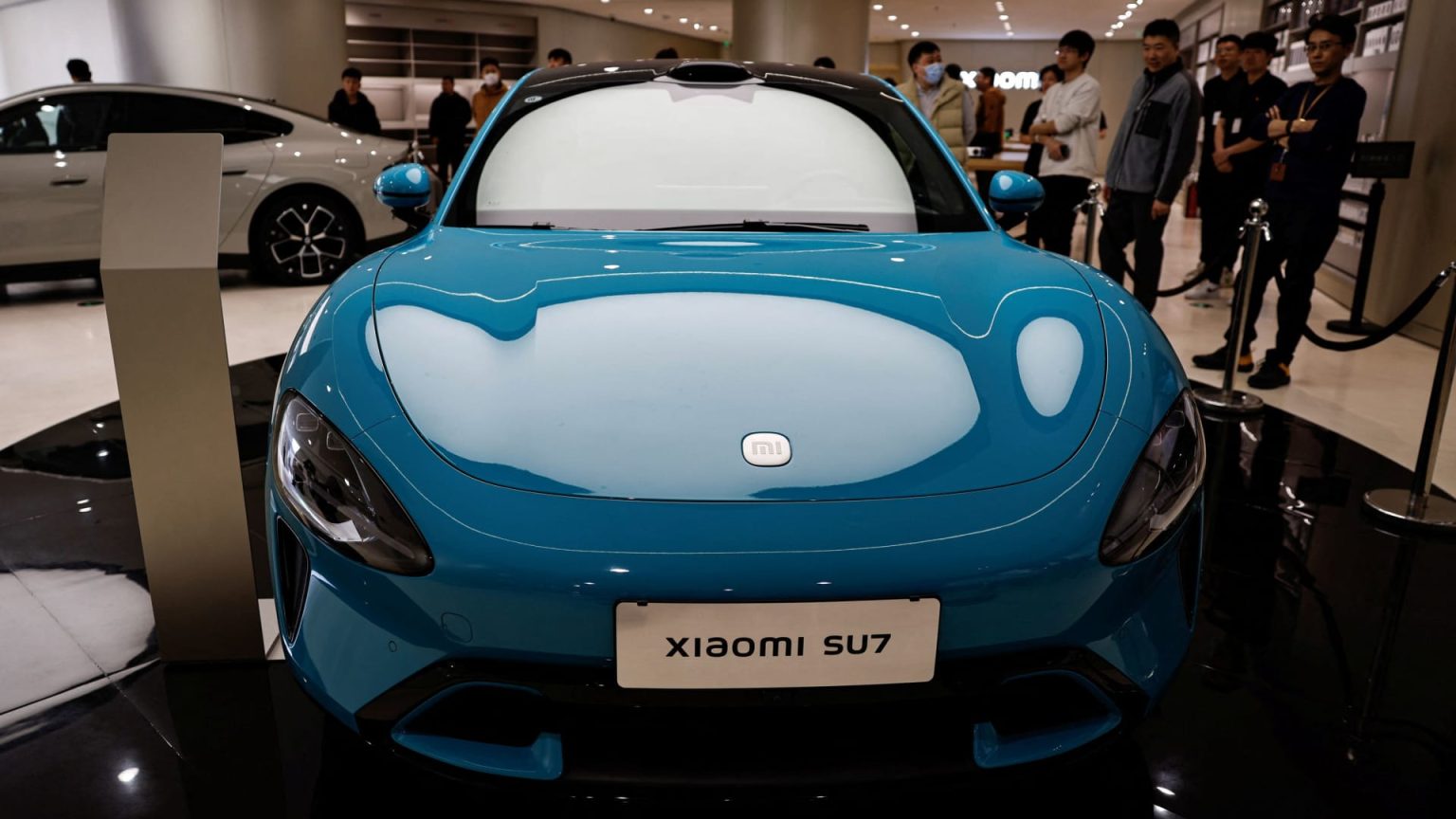Xiaomi, a Chinese smartphone company, has made a bold entry into the auto industry by introducing its electric SU7 sedan at a price significantly cheaper than Tesla’s Model 3. The company’s founder and CEO, Lei Jun, has expressed his vision of Xiaomi becoming one of the top five automakers in the world within the next two decades. Analysts have taken notice of Xiaomi’s potential impact on the auto market and its ability to outperform competitors in terms of driver assist and smart cabin features. Despite facing wait times of nearly six months or longer for the SU7, Xiaomi has already received more than 100,000 orders, with a significant portion already locked in.
Xiaomi’s strategy involves creating an ecosystem that connects consumers with their homes and cars, with the recent launch of the HyperOS operating system. This ecosystem includes smart appliances and devices that can be controlled through a single app, creating a seamless user experience. Xiaomi’s main source of revenue still comes from smartphones, but the company is expanding into other areas including home appliances and now electric vehicles. While some analysts are taking a wait-and-see approach to Xiaomi’s foray into the auto market, others see the potential for long-term growth and profitability.
The company’s advantages include brand recognition in China and a significant cash reserve of 110 billion yuan that can help Xiaomi weather a potential price war in the auto industry. Xiaomi is currently producing each car at a loss, but the company has invested in its own factory to increase production capacity. The factory boasts highly automated production lines, which should help improve the company’s EV profitability in the mid to long term. Despite the risks of trade tensions and concerns about China’s overcapacity in the auto industry, Xiaomi remains focused on the Chinese market for now.
Xiaomi’s expansion into the auto market has garnered significant attention from analysts and investors, with some predicting that the company could become a major player in the industry. The success of the SU7 sedan and Xiaomi’s ability to outperform competitors on tech capabilities have contributed to a surge in the company’s stock price, before giving back some gains. Analysts like Morgan Stanley and JPMorgan have expressed confidence in Xiaomi’s potential and have overweight investment recommendations on the company. However, the company’s success in the auto industry remains uncertain, and it will be crucial for Xiaomi to meet consumer expectations with its product offerings.
Xiaomi’s ecosystem approach, which integrates home appliances, smartphones, and now electric vehicles, presents a unique opportunity for the company to generate recurring revenue and subscription models. By connecting consumers with their homes and cars through a single platform, Xiaomi aims to create a seamless and convenient user experience. While the company faces challenges in a competitive market, its focus on innovation and smart manufacturing processes could position it as a disruptor in the auto industry. Ultimately, Xiaomi’s success in the auto market will depend on its ability to deliver high-quality products that meet consumer demand and expectations.


